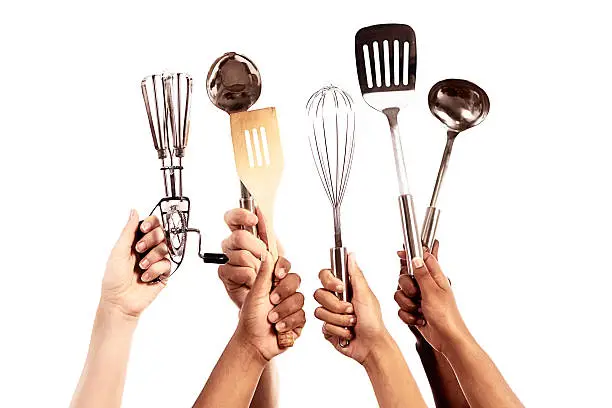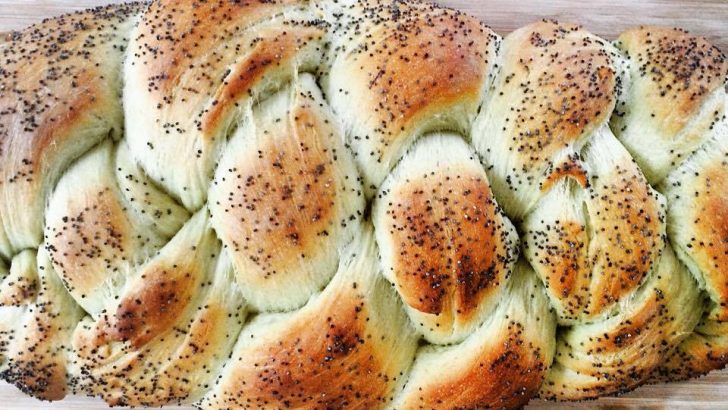Written by Naomi Davis for World of Vegan
“But Dad, why can’t I eat pork in the house?” I asked repeatedly over the years. As a kid, I had a hard time reconciling my yearning to eat whatever I wanted and my desire to fit in with my family’s dietary choices.
My dad has been vegetarian most of his life and, as a rabbi, he believed strongly in not eating animals. Through the eyes of a curious child, I wondered if his tofu actually had anything at all to do with our religion or if the chicken my mom was cooking was really what Judaism was about.
Today, the three of us are completely vegan, and our veganism is deeply woven into the values of Judaism. Working for the nonprofit organization Jewish Veg has given me a platform from which to understand and promote the plant-based lifestyle, which is an expression of Judaism’s highest ideals.
Let’s start from the beginning…the very beginning: Genesis 1:29. In this verse, God has the very first conversation with Adam. God tells him that plants are his food. It’s that simple.
As we reflect on the entire Torah, we are reminded that back in the Garden of Eden, everything was good. Yet today, people often say that the laws of kashrut tell us how we should eat. Can both be true?
The rules of kashrut permit animals to be killed for food. However, we are never commanded to kill or eat animals, and we are highly restricted if we do. We don’t see these types of restrictions on plant-based foods. We are free to eat fruits, vegetables, nuts, legumes, and grains as liberally as we please.
The kosher laws show us that there is something innately different about eating animals and eating plants. In fact, we should question if we should eat animals at all. In Numbers 11:34 and in Deuteronomy 12:20, meat-eating is described as a concession to our human lust and gluttony, rather than a product of the Divine will. So while meat-eating is permitted in the Torah, it is clear that veganism is the most ethical form of keeping kosher, and the easiest.
God gave us dominion over animals in the very same conversation in which God commanded us to eat plant-based. As we are created in God’s image, we are charged with nurturing God’s creations, not imprisoning, torturing, or killing them. Why do we use dominion as an excuse to oppress members of other species? Aren’t they entitled to their own God-given lives? In fact, the word for animals in hebrew, baalei chayim, means owners of life.
This leads us to ask ourselves an essential question: What is the intention of living a Jewish life? Is it one filled with compassion, love, and social action? Or will we choose a life of causing unnecessary suffering to God’s creatures?
We are constantly reminded to repair the world, Tikkun Olam. I don’t see how killing God’s creatures, causing immense psychological and physical pain, eating the bodies of individuals who just want to live, causing untold environmental degradation, and putting our own God-given bodies at great risk of serious health problems, is compatible with Tikkun Olam.
Today’s animal agriculture industry is a layered system of oppression in which we, as a society, are complacent.
Why? Because we like the taste of meat? Because we choose to look away? Farms are out of sight, out of mind. We often don’t even realize the consequences of our food choices.
Chickens are crammed into cages and sheds so tiny they often cannibalize one another and cannot turn around. They have their beaks painfully seared off, often mutilating them so badly they cannot eat. They starve to death or die from infectious disease. Their bodies are so broken-down from being overused to produce eggs, that the industry kills them as soon as they are spent, when they haven’t even lived one-third of their normal lifespan. Male chicks are not useful for egg-laying, and they are ground up alive or suffocated in plastic bags after being born.
Young cows are separated from their mothers almost immediately after they are born so that humans can steal their milk. Separating families causes severe emotional trauma. We forcibly impregnate female cows and kill them all after they are spent. Male calves aren’t useful to the dairy industry and therefore are killed soon after being born.
Fish are often left out of the conversation, but they too have central nervous systems and pain receptors. The suffer extreme amounts when we hunt them. 98% of what we kill is bycatch, made up of other species such as turtles and sharks. Fish farms are no better; they are really just code for underwater factory farming.
Is this what God imagined when giving us dominion? Oppression? Disregard for the lives of others just because they are born in bodies different from ours?
Treating others’ lives as less important than our own is the very definition of discrimination.
God gave humans vast abilities and resources, and was concerned that we might use our powers to harm rather than to repair. To ensure that doesn’t happen, the Torah gives us a number of commandments telling us to treat animals with compassion:
- In Exodus 23:5, we’re told to help a donkey who is struggling to bear her load, even if the donkey belongs to our sworn enemy.
- Deuteronomy 22:10 forbids us to yoke an ox and ass to the same plow, for neither one would be able to proceed at his natural speed. This conveys exquisite sensitivity about respecting the nature of animals.
- In Exodus 20:9, animals are even to be given a day of rest on the Sabbath.
We refer to the many verses in the Torah dealing with our treatment of animals collectively as tza’ar baalei chayim, the prohibition against causing an animal to suffer. These verses clearly represent God’s concern for the well-being of animals.
There is no way to justify that modern farming, or farming animals at all, can comply with the mandates that the Torah has set forth. In what world is compassion synonymous with oppression? It is impossible today for meat to ever actually be kosher because the very concept is in violation with tza’ar baalei chayim.
Animals have their own desires, interests, and needs, and as caretakers we have a responsibility to honor them.
I am no longer torn and wondering if my Judaism is tofu or chicken. Looking at Torah, the heart of our religion, there is no question that I want my Judaism to be one which upholds compassion.
Family holiday and celebratory meals no longer are the products of exploitation and cruelty, but rather the colorful array of plants that God commanded us to eat in the Garden of Eden.
- We proudly place a beet on the Seder plate instead of an shankbone.
- We use aquafaba, the watery juice in which chickpeas are cooked or canned, in our crispy latkes.
- Every Friday, we braid our fluffy, golden, flax-seed Challah.
- And let’s be honest, I always wanted to pass on gefilte fish.
You can join me in making a change today. You can transition to a healthier, more just, and yes, tastier life. Together, we can transform the world.
Watch Naomi explain her reasons for choosing veganism in this video.



















